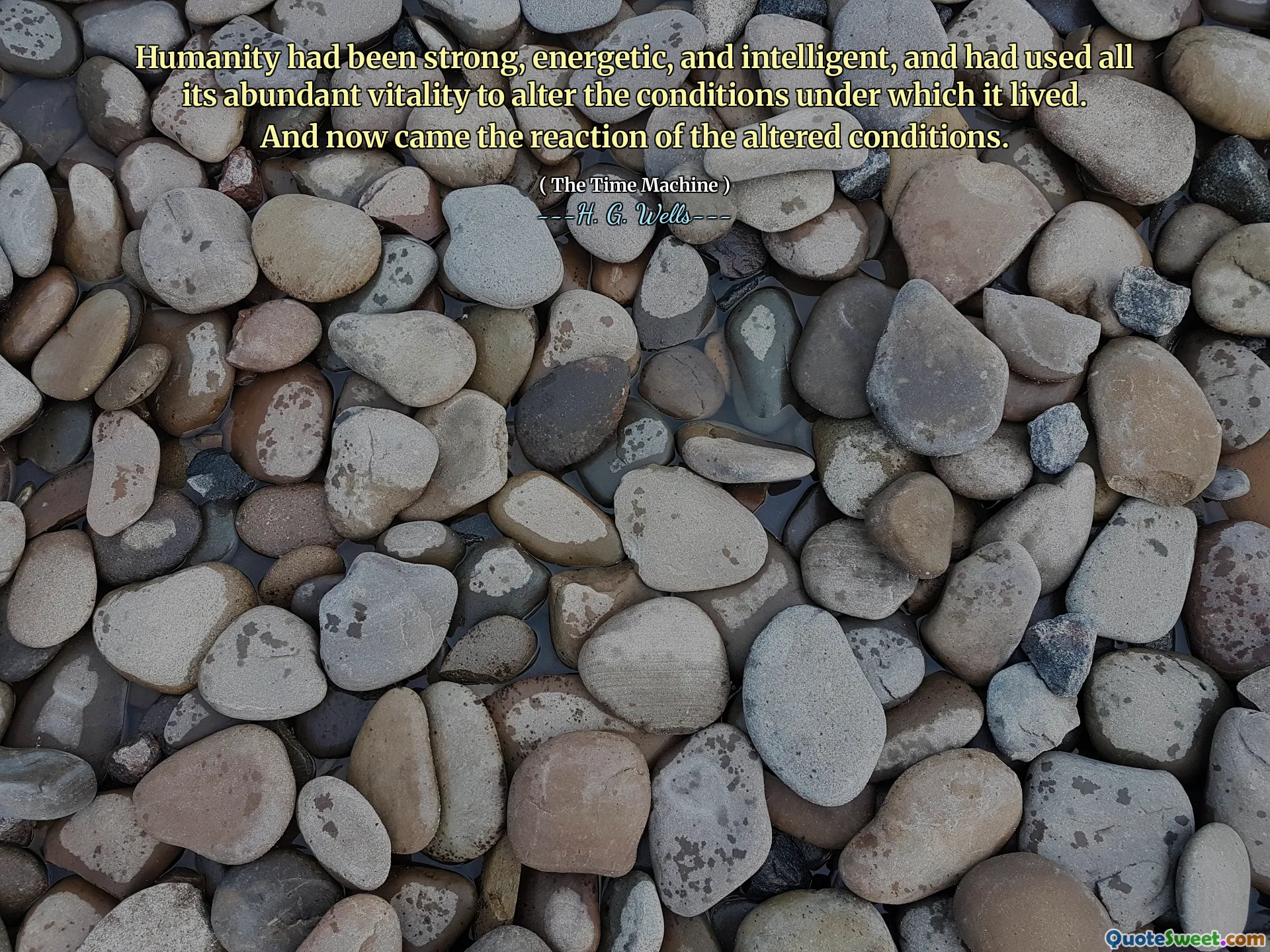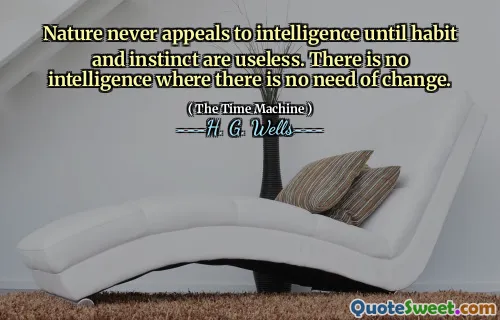
Humanity had been strong, energetic, and intelligent, and had used all its abundant vitality to alter the conditions under which it lived. And now came the reaction of the altered conditions.
In H.G. Wells' "The Time Machine," humanity is portrayed as a dynamic force, characterized by its strength, energy, and intelligence. Humans have harnessed their vitality to change their environment, aiming to improve their living conditions. This transformation reflects humanity's relentless pursuit of progress and adaptation throughout history.
However, the narrative reveals a consequence of these alterations— the emergence of a reaction to the new conditions created by human actions. This reaction serves as a critique of humanity's attempts to control and modify nature, suggesting that such changes can lead to unforeseen challenges and consequences. The duality of human ambition and its repercussions is a central theme in the story.











